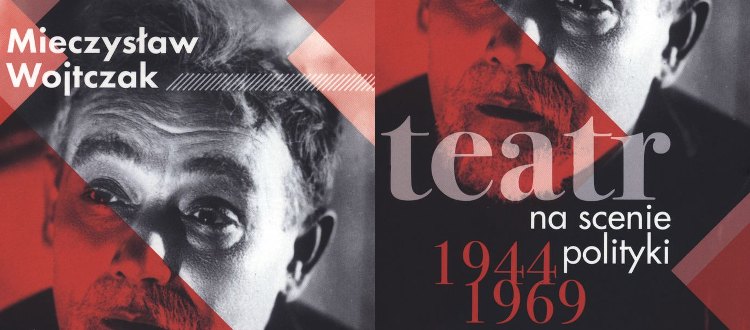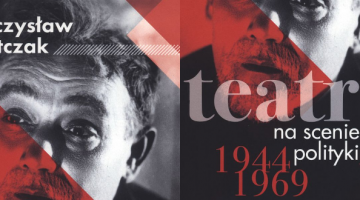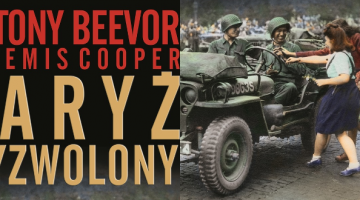„Oh no, gentlemen, not in that way!” – one would like to shout out the words of the once famous song, during the undoubtedly interesting reading of Theater on the scene of politics 1944-1969, a book by Mieczysław Wojtczak. Its author, a journalist and publicist, was a party activist in the 70s and 80s, who until December 1981 was Head of the Department of Culture of the Central Committee of the Polish United Workers’ Party. While getting acquianted with his work, we can have the feeling that the author has undoubtedly accumulated a lot of documents valuable for historians of Polish theater, but unfortunately still lives in full faith of the absolute unity of the theory contained in them with the practice.
It seems that beautiful words and the admirable, almost breathtaking care for the state of Polish theater, emanating from PPR, PPS and PZPR materials, currently gathered in the Archives of New Acts, still captivate the author. They allow him to build vague mental constructions, such as the one we find on page 122 – the author sees a clear change for the better in the cultural politics of the turn of 1949-1950 in „expanding the circles of creators that had until now been omitted”, the proof of which, according to Wojtczak, were broadcasts about – mentioned in one breath – „Jakub Jasinski, Father Piotr Ściegienny, Edward Dębowski, Jarosław Dąbrowski, Feliks Dzierżyński …”. The pantheon of the characters, where Dzierżyński and Jasiński stand next to each other must ellicit not only anxiety, but also embarrassment as to the value of the latest conclusions from the research on the history of Polish culture…
On the cover of the book we find the information that „within the People’s Poland there worked great artists known for their creative achievements in the interwar period: Juliusz Osterwa, Aleksander Zelwerowicz, Aleksander Węgierko, Edmund Wierciński.” But where should they be? Does the author think they should emigrate?! They created here because Poland, whether the People’s Poland or not, was their homeland, and the theater was simply their job and life. Reading Theater on the scene of politics 1944-1969, I had the impression that what was just a haze, mirage and wish, for Wojtczak is a historical fact. I do not have to add that this means a tendency towards a cursory and not very honest analysis. Of course, history must be interpreted in different ways and in one’s own right, but those who tried to create it (and now, after years, tend to „remember only good things” or maybe just only those which present them in a good light) should be especially careful. For anyone who has not had a chance to look at the history of Polish theater, the danger of Wojtczak’s work is that it may seem to be a a reliable book.
The author tries to explain, or at least help to understand under what conditions one worked on the stage of the Polish People’s Republic after 1945. And yet his work lacks too many elements to make the picture credible. What the party’s functionaries wanted to leave behind in the archives is not synonymous with the way in which their policies touched theater artists. Yes, I recommend reading Theater on the scene of politics 1944-1969, because this is an instructive expedition into a world distant for many younger readers; I recomment reading it as a warning against returning to absurd times and the absurd language, so often used when trying to evaluate past years.
Joanna Roś









